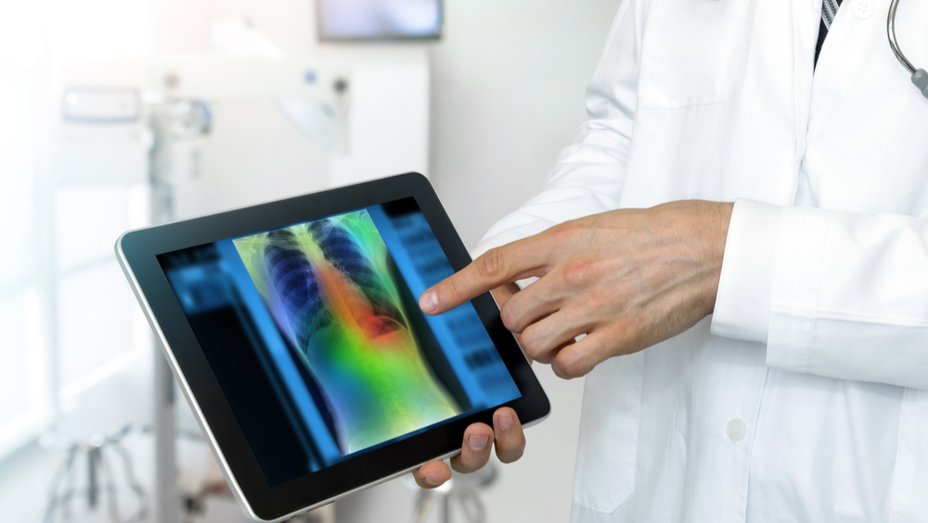Artificial intelligence in medicine
Can machines think for themselves? Can they learn? Can they become self-sufficient? And if they can, what does that mean for humanity? These questions are no longer the stuff of sci-fi novels and films. Artificial intelligence is here, and it is becoming smarter every day. It’s transforming the workplace and improving customer service. But artificial intelligence in medicine is one of the most exciting areas of progress because of its vast applications for improving the health and well-being of humans – and even allowing us to live forever.
While sci-fi is fascinating, we’re already seeing the benefits of artificial intelligence in medicine every day, in hospitals, doctors’ offices and diagnostic labs around the world. So how can you harness the power of AI in medicine to improve your own life?
What is artificial intelligence in medicine?
When we talk about artificial intelligence in medicine, we’re talking about taking the principles of AI – complex, machine-learning algorithms that detect patterns and make connections within massive datasets – and using them for medical purposes. This can mean anything from faster, more accurate diagnoses of cancer and heart disease, to determining which tests to perform and in what order, to smartphone apps that monitor patients’ condition and help improve adherence to treatment programs.
AI and medicine are the perfect partners. The medical industry has massive amounts of data, but is notoriously disorganized and disconnected. Artificial intelligence is positioned to leverage that data to improve not only the patient experience, but patient outcomes. The potential applications and benefits of artificial intelligence in medicine are endless – transforming and even saving lives.
Applications of artificial intelligence in medicine
When it comes to artificial intelligence and the future of medicine, the possibilities are endless: early detection of all sorts of conditions, improved pharmacology and even age-reversal. There are many applications of artificial intelligence in medicine that are already transforming the industry.
1. Cancer detection
Cancer is a complex disease that is difficult to diagnose accurately – but artificial intelligence in medicine can help. The Deep Learning based Automatic Detection algorithm, or DLAD, can detect abnormal cell development in chest radiographs, helping to detect cancers and outperforming human doctors in many instances. The Lymph Node Assistant algorithm, or LYNA, can spot breast cancer in lymph node biopsies with 99 percent accuracy. And the Decipher biopsy test analyzes the metastatic potential of tumors to help doctors build the right treatment programs.

2. MRIs and CT scans
While MRIs and CT scans remain top diagnostic tools, AI in medicine can help make them more accurate and efficient. The fastMRI tool uses large-scale data collection to build MRI images in a new way – using about four times less data than a traditional MRI and improving speed by up to ten times. Another tool, the MRI/TRUS Fusion for Prostate Biopsy, uses AI-assisted machine learning to combine ultrasound and MRI scans into one 3D image that can help doctors map tumors and identify biopsy targets. AI-assisted imaging is also used in CT scans to detect certain conditions, such as stroke, and notify doctors so they can provide treatment more quickly.
3. Heart disease

Heart disease is a top killer of people in America and around the world. To effectively treat it, early detection is key – and artificial intelligence in medicine is necessary for early detection. Coronary computed tomography angiography (CCTA) is a type of heart disease prediction using artificial intelligence that can detect early warning signs of a heart attack by analyzing images to determine whether plaque levels are safe or dangerous. This test can let you know if you may have a heart attack looming – even five or ten years from now – so you can change your lifestyle and prevent it. Tony shares more details about this test in his book, Life Force: How New Breakthroughs in Precision Medicine Can Transform the Quality of Your Life & Those You Love.
4. Drug discovery
Drug discovery is the process by which potential new drugs are identified. It involves determining which chemicals have potential to become drugs, which technologies have the potential to deliver drugs in a new way or which existing treatments may have other applications. Drug discovery takes a long time and is prohibitively expensive – so many pharmaceutical companies are eager to pair AI and medicine to help solve this problem. In Life Force, Tony shares one innovative company that is using generative adversarial networks (GANs) to reinvent the drug discovery process.
Benefits of artificial intelligence in medicine
Artificial intelligence in medicine has massive implications for patients, doctors, pharmaceutical companies, hospitals and just about anyone in the industry. Benefits include:
Increased accuracy
With the use of real-time data, precise imaging and machine-learning models, medical professionals can identify risks and ultimately make better decisions in less time. Considering that diagnostic errors are one of the biggest reasons for medical malpractice suits, this benefit of artificial intelligence in medicine can improve the lives of both doctors and patients.
Increased efficiency
Along with faster, more accurate decision-making comes increased efficiency. AI in medicine can automate many manual processes, such as radiology scan analysis. It can also improve operational efficiencies, such as assessing medical necessity, reviewing insurance claims, scheduling appointments and tracking patient follow-up.
Cost savings
It’s estimated that anywhere from 15% to 25% of total health care expenditures in the US go toward administrative costs. AI can help automate routine tasks, optimize workflows and free up humans to do what they do best: Innovate, create and connect with other humans to improve lives.
Better patient care
All of these benefits of artificial intelligence in medicine lead to the most important thing of all: better patient care and better patient outcomes. By decreasing workloads, easing stress and prioritizing caseloads, patients get more face-to-face time, and doctors are free to focus on more critical cases. When healthcare is optimized, everyone wins.
Artificial intelligence and the future of medicine
So what does the future hold for AI in medicine? Researchers and doctors are excited about AI’s potential to bring specialist expertise to general practitioners through continued improvement of image analysis. GPs would send images to an AI system to be analyzed instantly, returning a risk analysis and recommendations for further care. There is already potential to use AI to analyze dermatology, radiology, ultrasound and retinal images, and the possibilities don’t stop there.
Ambient clinical intelligence (ACI) is another potentially transformative area. This is AI-powered voice recognition technology that automatically transcribes doctor-patient conversations into the electronic health record. Finally, processing the massive datasets required by both AI and medicine is an ongoing challenge that is the focus of Google’s DeepMind Health project, among other organizations.
Many researchers are first working on overcoming its challenges, such as its inability to “generalize” or remain accurate outside the confines of a specific dataset, and the lack of data equity, or datasets and causal assumptions with inherent biases. Patient access is also a challenge – because after all, what use are all of these advancements if the benefits of artificial intelligence in medicine don’t reach the people they’re intended for? Yet the future of AI in medicine and other industries is bright, and incredible breakthroughs are just over the horizon.
Want to expand your knowledge of AI and medicine?
Artificial intelligence can help you improve your well-being and extend your life. Take a deeper dive in Tony’s book, Life Force.